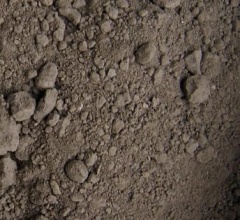Difference between revisions of "Concentrates (of Minerals)"
| Line 16: | Line 16: | ||
Consult the IMSBC Code (International Maritime Solid Bulk Cargoes Code) for further transport particulars; (Mineral concentrates; Section 4: Assessment of acceptability of consignments for safe shipment to which shippers/producers' attention should be drawn. If in any doubt Section 8: Cargoes which may liquefy (test procedures) should be consulted and on board testing carried out.<br><br> | Consult the IMSBC Code (International Maritime Solid Bulk Cargoes Code) for further transport particulars; (Mineral concentrates; Section 4: Assessment of acceptability of consignments for safe shipment to which shippers/producers' attention should be drawn. If in any doubt Section 8: Cargoes which may liquefy (test procedures) should be consulted and on board testing carried out.<br><br> | ||
| + | − | ||
| + | See also '''[[Ores unprocessed]]'''<br><br> | ||
[[Category: Products]][[Category: Minerals and rocks]] | [[Category: Products]][[Category: Minerals and rocks]] | ||
Latest revision as of 15:10, 27 May 2019
| Infobox on Concentrates (of Minerals) | |
|---|---|
| Example of Concentrates (of Minerals) |  |
| Facts | |
| Origin | Several continents |
| Stowage factor (in m3/t) | 0,33/0,57 m3/t (bulk) |
| Humidity / moisture | See text |
| Ventilation | No |
| Risk factors | See text |
Concentrates (of Minerals)
Contents
Description / Application
Mineral concentrates are the product of ore dressing operations whereby valuable metals recovered through mining operations are separated from waste rock prior to shipment to market.
In many mining operations ore is crushed and wet milled to liberate the valuable mineral. This slurry is concentrated by flotation and then filtered to form a dry mineral concentrate that is shipped to refineries to produce metallic products. The type of filtration equipment required depends upon the particle size, mineralogy and shipping requirements. As with all mining operations the required equipment is robust and designed to be reliable even under the toughest operating conditions.
Several known Bulk Cargo Shipping Names (BCSN) of mineral concentrates are listed below but the list is not exhaustive, viz.:
- Copper, iron, lead, manganese, nickel and zinc concentrates.
Shipment / Storage / Risk factors
The above materials are shipped in bulk and may liquefy if shipped at moisture content in excess of their transportable moisture limit (TML). These cargoes are non-combustible or have low fire-risks.
Consult the IMSBC Code (International Maritime Solid Bulk Cargoes Code) for further transport particulars; (Mineral concentrates; Section 4: Assessment of acceptability of consignments for safe shipment to which shippers/producers' attention should be drawn. If in any doubt Section 8: Cargoes which may liquefy (test procedures) should be consulted and on board testing carried out.
−
See also Ores unprocessed











